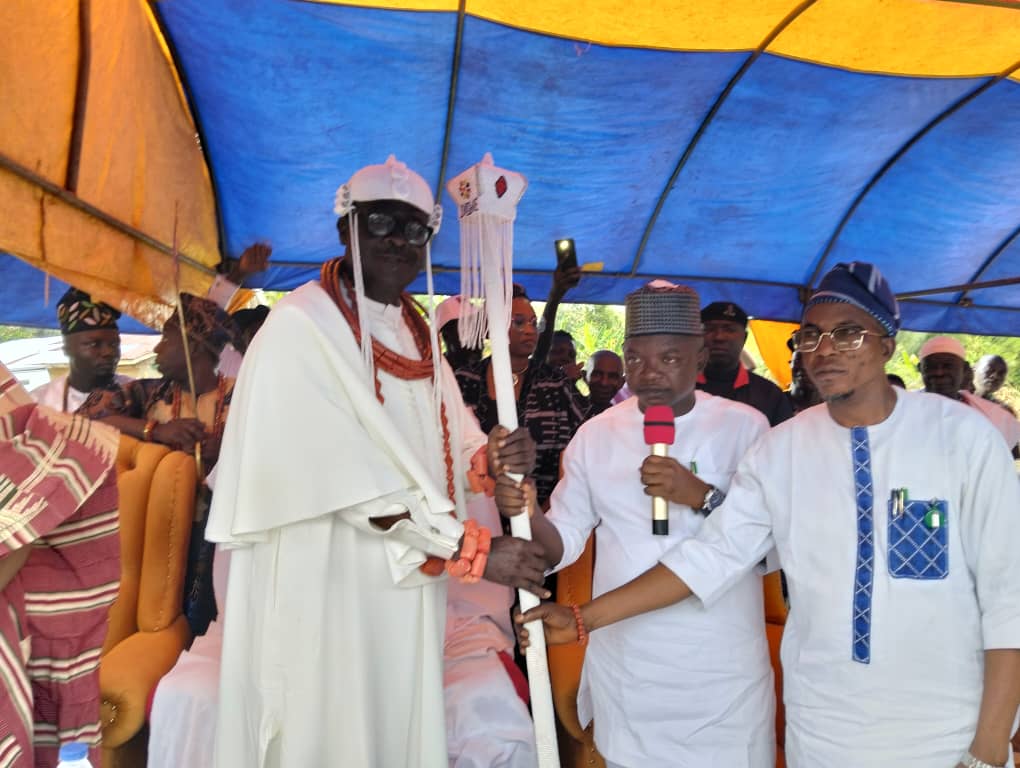News
Naira Scarcity: Disobedience To Supreme Court Ruling May Cause Breakdown Of Law, Order – ACF

The Arewa Consultative Forum (ACF), has cautioned against the continuous disobedience of the Supreme Court ruling on the naira redesign policy by the federal government.
The Forum said the continuous disobedience by the Central Bank of Nigeria could lead to a breakdown of law and order in the country.
The Supreme Court in its last judgment extended the use of the old naira notes in the country till December 31.
But the Arewa Consultative Forum, which claimed the ruling is being disobeyed by the CBN said in a statement that the current approach of the Central Bank of Nigeria (CBN) raises concerns about the respect for the civil liberties and rights of Nigerians regarding their freedom to use legitimately earned income as they wish.
Murtala Aliyu, the ACF Secretary General, argued that whatever the CBN or anyone else says about the benefits of the policy is of little comfort to Nigerians considering their suffering in assessing funds.
The statement said ”ten days is long enough time for the government to find its way towards complying with a court order which is central to the achievement of peace, order and good governance in the country”.
READ ALSO: Naira Scarcity May Push Nigerians Into Depression, Suicide —Psychiatrist
The Forum reminded that President Muhammadu Buhari is under the oath to defend the constitution of Nigeria, stressing that as his long-term supporters, it would be remiss of Nigerians if they fail to warn that the much-touted benefits of the naira redesign can never justify the damage to his credentials as a democrat and a stickler for the rule of law.
The forum expressed concern that the huge crowds and long queues formed around bank offices and ATM points across the country, pointing out that the people had been struggling to get the new cash which has remained extremely scarce and has triggered riots and other forms of civil unrest.
News
PHOTOS: New Era In Furupagha-Ebijaw As Okpururu 1 Receives Staff Of Office

It was an atmosphere of excitement and display of culture and unity in Ebijaw community, Odigbo Local Government Area of Ondo State, as the state governor, Lucky Aiyedatiwa, formally presented Instrument of Appointment and Staff of Office to His Royal Majesty (Pere), Meus Tunde Ditoru-Muje, Opu-Ugo, Okpururu 1, the Ibediowei of Furupgha-Ebijaw Kingdom.
The ceremony, which attracted government officials, traditional rulers and royal fathers from within and outside the local government, also had in attendance the Ibe and Amaokosuowei (oldest man in the kingdom), Pa Emmanuel Odushu, and dignitaries from the over 17 communities under the kingdom.

In his speech, Governor Aiyedatiwa reminded the new King that he is a father to all the people in his domain, and that he should: “bear in mind that the responsibility to lead the kingdom to a greater level of social and economic progress now lies squarely on your shoulders.”
The governor, who was represented by the Commissioner for Local Government and Chieftaincy Affairs, Alhaji Amidu Takuro, while reminding traditional rulers in the state that the government will not tolerate any chieftaincy appointments by traditional ruler without the state government’s approval particularly on disputed territories, prayed God to “help your Royal Majesty to succeed in this new task of traditional leadership.”

READ ALSO:Court Dissolves Petitioner’s Marriage Over Lack Of Love, Care
Earlier, in his welcome speech, Odigbo Local Government Council Executive Chairman, Hon. Adegoroye Taiwo, while urging the Pere and “his Traditional Chiefs to work in promoting peaceful coexistence, harmony, and enduring development in your respective domains,” appealed to HRM to “carry everyone along, have the heart of forgiveness. As a traditional ruler everyone belongs to you. So work with them.”
In his speech, the Okpururu 1 thanked the governor and the state government for recognising the Furupgha-Ebijaw traditional throne for the first time after decades, noted that “this singular act has wiped away decades of longing, restored the dignity of our people, and written our name boldly in the annals of history.”

“For the first time since the founding of this community by our forefathers, our traditional institution has been formally recognised by the Government of Ondo State with the presentation of a Staff of Office.
“By this recognition, your administration has demonstrated fairness, inclusiveness, and respect for tradition. You have listened to the voice of history, justice, and the aspirations of our people, and for this, we shall remain eternally grateful.”

READ ALSO:My Wife Dented My Image, Took Our Marital Crises To Radio Stations — Husband
HRM, pledged to “rule with wisdom, fairness, and transparency, to promote peace and unity among our people, and to work closely with the government at all levels to advance development, security, and prosperity in our land.”
The Pere, while acknowledging that the “Staff of Office is not merely a symbol of authority; it is a symbol of identity, unity, and hope,” said “It affirms our heritage, strengthens our cultural values, and reinforces the role of the traditional institution as a partner in governance, peace-building, and grassroots development.”

He assured the governor of ruling with “utmost humility, fear of God, and total commitment to service.”
He called on sons and daughters of the kingdom “to rally together, put aside differences, and join hands with the traditional institution and government to move our community forward,” stressing that “this achievement belongs to all of us.”

The Pere seized the occasion to draw the attention of the governor to challenges such as unavailable of motorable roads, lack of electricity and potable water, and perennial flooding and erosion in communities under the kingdom.


News
Edo SWAN Distances Self From Online Publication Against Enabulele

…demands retraction, warns member against unverified publication
The Sports Writers Association of Nigeria (SWAN), Edo State Chapter, has distanced itself from an online publication titled: ‘Samuel Ogbemudia Stadium Shut Against Stephen Keshi.’
A statement signed by the Secretary of the association, Comrade Idahosa Moses, Edo SWAN said neither was it consulted nor involved in the “framing of the narrative presented by the online publication.”
Edo SWAN described the publication as misleading, sensational and grossly lacking in factual balance.
The statement partly reads: “SWAN finds the report inconsistent with the ethical standards and core values of the journalism profession.
READ ALSO:SWAN Orders Nationwide Boycott Of NFF Activities
“While Edo SWAN recognises and respects the sentiments expressed by Mr. Austin Popo, Secretary of the Board of Trustees of the Stephen Keshi Football and Vocational Training Centre (SKFTVC), concerning the challenges encountered in securing the use of the Samuel Ogbemudia Stadium for this year’s Stephen Keshi Memorial National Under-17 Soccer Tournament, it is imperative to state that such concerns should not be reported in a manner that imputes motives, assigns blame without verification, or portrays public officials as acting in bad faith.”
On allegations against the Executive Chairman of the Edo State Sports Commission, Hon. Amadin Desmond Enabulele, in the publication, SWAN described Enabulele as a “seasoned professional with a proven track record of integrity and dedicated service to sports development in Edo State.”
“Any insinuation that he or the Commission deliberately acted to undermine the memory and legacy of the late Stephen Okechukwu Keshi is not only unfair but also unsupported by verifiable facts.”
Edo SWAN, therefore, “strongly cautions the publisher of Popular News to desist from publishing unverified and inflammatory reports capable of misleading the public and damaging reputations.”
READ ALSO:Botswana’s New President Sworn In As Voters Kick Out Ruling Party Of Nearly Six Decades
“The Association formally demands that the controversial publication be withdrawn immediately and that an unreserved apology be tendered to Hon. Amadin Desmond Enabulele.”
SWAN further “extends its sincere apologies to the Chairman of the Edo State Sports Commission, who is also a Patron of the Edo SWAN Chapter, for any embarrassment or misrepresentation arising from the said publication, and assures him of its continued respect, support and cooperation.”
Edo SWAN, while stating that it “shares in the collective responsibility of preserving and honouring the legacy of the late Stephen Keshi—a national icon whose contributions to Nigerian football remain indelible—the Association, maintained that “this noble course must be pursued through constructive engagement, professionalism and mutual respect among all stakeholders.”
Edo SWAN, thereafter, warned “all sports writers in the state to avoid unverifiable reports and sensationalism, stressing that any member found culpable of professional misconduct will be decisively sanctioned in line with the Association’s statutes.”
News
Court Dissolves Petitioner’s Marriage Over Lack Of Love, Care

An Area Court sitting at Centre-Igboro, Ilorin in Kwara State, on Thursday, dissolved the four-year-old marriage between Aminat Mustapha and Wahab Adeshina, following the petitioner’s insistence.
The petitioner told the court that she was no longer interested in her marriage to her husband following claims of lack of love and care.
According to the News Agency of Nigeria (NAN), while delivering ruling, the presiding judge, Mr Toyin Aluko, held that the respondent had written to the court, accepting the divorce application made by his wife.
READ ALSO:Why I Charged My Husband Money For Sex —Woman
Aluko, consequently, dissolved the marriage between the parties, and ordered the woman to observe one month iddah (waiting period) before she could remarry.
Meanwhile, the court granted custody of the two children in the marriage, ages one and three, to their mother.
He ordered the father to pay a monthly sum of N20,000 for the children’s feeding and maintenance.
The court also held that the respondent will be responsible for their education and healthcare.
Again, the court held that the father has unrestricted access to his children, but at reasonable time adding that he should be notified before any decision is taken on his children.
The judge ordered the petitioner to get a copy of the judgment and send same to the respondent.

 Metro5 days ago
Metro5 days agoAlleged Organ Harvesting: Bereaved Families Rush To Check Corpses

 News4 days ago
News4 days agoPolice Confirm Edo Tanker Explosion, say No Casualty

 News3 days ago
News3 days agoFormer Delta North senator Peter Nwaoboshi Dies

 News5 days ago
News5 days agoEdo SSG Calls On Media To Support Govt Policies, Assures Better Welfare

 Metro2 days ago
Metro2 days agoJUST IN: Former Edo Information Commissioner Is Dead

 News4 days ago
News4 days agoGrassroots To Global Podium: Edo Sports Commission Marks Enabulele’s First Year In Office

 News4 days ago
News4 days agoOtuaro Tasks Media On Objective Reportage

 News4 days ago
News4 days agoIPF Hosts Media Conference, Seeks Protection For N’Delta Environment

 News4 days ago
News4 days agoOkpebholo Sympathises With Otaru, People of Auchi Over Tragic Tanker Fire Incident

 News4 days ago
News4 days agoBauchi Govt Sensitises 14,000 LG Staff On Promotion Examination
































